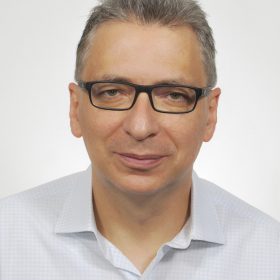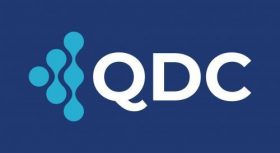During this workshop we will focus on practical techniques for building reliable and effective LLM-based workflows for extracting accurate information from natural language documents or unstructured data.
Unlike chat and creative writing applications where a great deal of variation in responses to the same query is acceptable but sometimes even required, implementing business processes using LLMs demands stable and reproducible results that can be rigorously tested. This presents a unique set of engineering challenges due to the inherent randomness of LLMs.
During the workshop will discuss how to overcome these challenges to build effective LLM-based workflows with hands-on examples from trading and risk.
Session 1 – Theory
- Principles of LLM design and implementation
- Key prompt engineering techniques
- Strengths and weaknesses of popular LLMs – GPT-4o, LLAMA 2/3, Mixtral
- Achieving reliable extraction of data embedded in natural language or unstructured input
- On-demand access to external data (e.g. a security master)
- Establishing that a data for an output field is missing instead of hallucinating it from unrelated training data
- Establishing that unused data remains after populating all output fields
- Fast and cost-effective techniques for working with very large input documents
Session 2 – Practice
- Trade capture from unstructured data
- Reliable LLM-based ranking
- Covenant and legal document analysis
Session 1: 13.30 – 15.00
Coffee Break: 15.00 – 15.15
Session 2: 15.15 – 16.45
Q&A: 16.45 – 17.00
The workshop half day on Wednesday 25th September will be complimentary to all delegates.

Alexander Sokol:
Executive Chairman and Head of Quant Research, CompatibL
Alexander Sokol: Executive Chairman and Head of Quant Research, CompatibL
Alexander Sokol is the founder, Executive Chairman, and Head of Quant Research at CompatibL, a trading and risk technology company. He is also the co-founder of Numerix, where he served as CTO from 1996 to 2003, and the co-founder of Duality Group, where he served as CTO from 2017 to 2020.
Alexander won the Quant of the Year Award in 2018 together with Leif Andersen and Michael Pykhtin, for their joint work revealing the true scale of the settlement gap risk that remains even in the presence of initial margin. Alexander’s other notable research contributions include systemic wrong-way risk (with Michael Pykhtin, Risk Magazine), joint measure models, and the local price of risk (with John Hull and Alan White, Risk Magazine), and mean reversion skew (Risk Books, 2014).
Alexander earned his BA from the Moscow Institute of Physics and Technology at the age of 18, and a PhD from the L. D. Landau Institute for Theoretical Physics at the age of 22. He was the winner of the USSR Academy of Sciences Medal for Best Student Research of the Year in 1988.
The Corporate Sustainability Reporting Directive (CSRD) requires companies to disclose “material sustainability matters”. Specifically, companies must undertake a ‘double materiality assessment’ to identify which sustainability matters are most material to the organization and its stakeholders.
The keyword here is “double”: companies must consider their impact on people and environment (“inside-out view”), as well as the impact of external sustainability-related developments and events on their own risks and opportunities (“the outside-in view”).
In this workshop, we will outline the main steps in identifying and assessing double materiality for financial institutions. We will focus on main approaches in each of the steps from a practical perspective.
On the examples of corporate lending portfolios, we will zoom in on issues such as:
- How to identify potentially relevant sustainability matters and the related impacts, risks and opportunities.
- How to assess impacts, financial opportunities, and risks.
- What are the strategic implications and main action points resulting from such a double materiality exercise.
Session 1: 13.30 – 15.00
Coffee Break: 15.00 – 15.15
Session 2: 15.15 – 16.45
Q&A: 16.45 – 17.00
The workshop half day on Wednesday 25th September will be complimentary to all delegates.

Svetlana Borovkova:
Head of Quantitative Modelling, Probability & Partners. Associate Prof, Vrije Universiteit Amsterdam
Svetlana Borovkova: Head of Quantitative Modelling, Probability & Partners and Associate Professor, Vrije Universiteit Amsterdam
Dr Svetlana Borovkova is the partner and Head of Quant Modelling of risk management consulting firm Probability and Partners and an Associate Professor of Quantitative Finance and Risk Management at the Vrije Universiteit Amsterdam. She is the author of over 60 academic and professional publications and a frequent speaker at conferences such as RiskMinds and QuantMinds. Her work encompasses a wide range of topics, ranging from derivatives pricing and risk modelling to sentiment analysis for quant investing and machine learning in quant finance. Find her work at SSRN and her columns on various finance topics in Financial Investigator.

